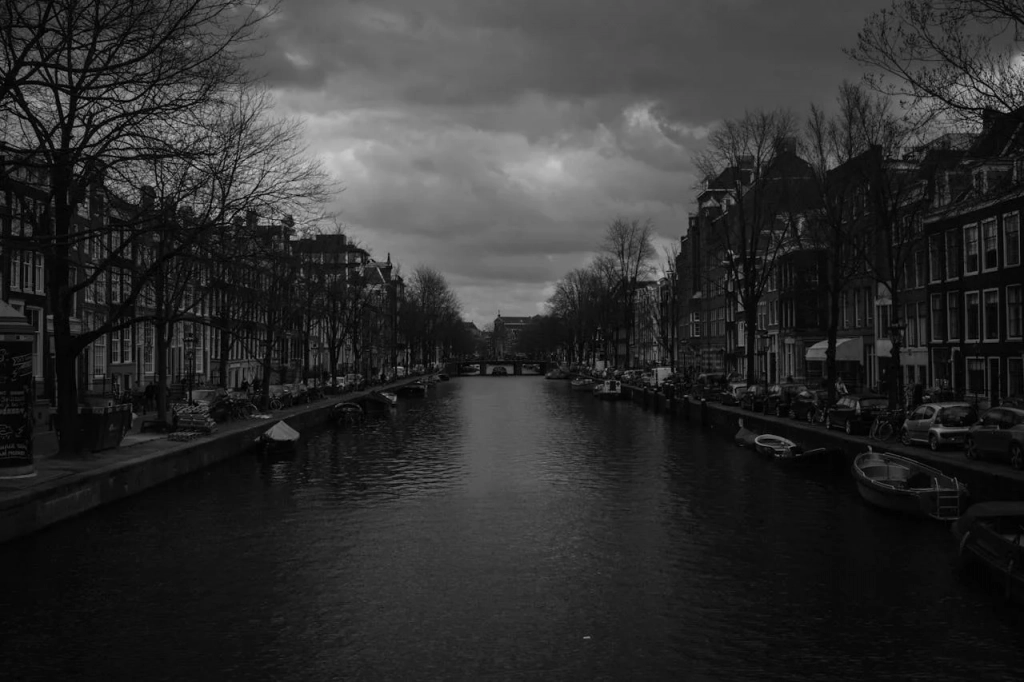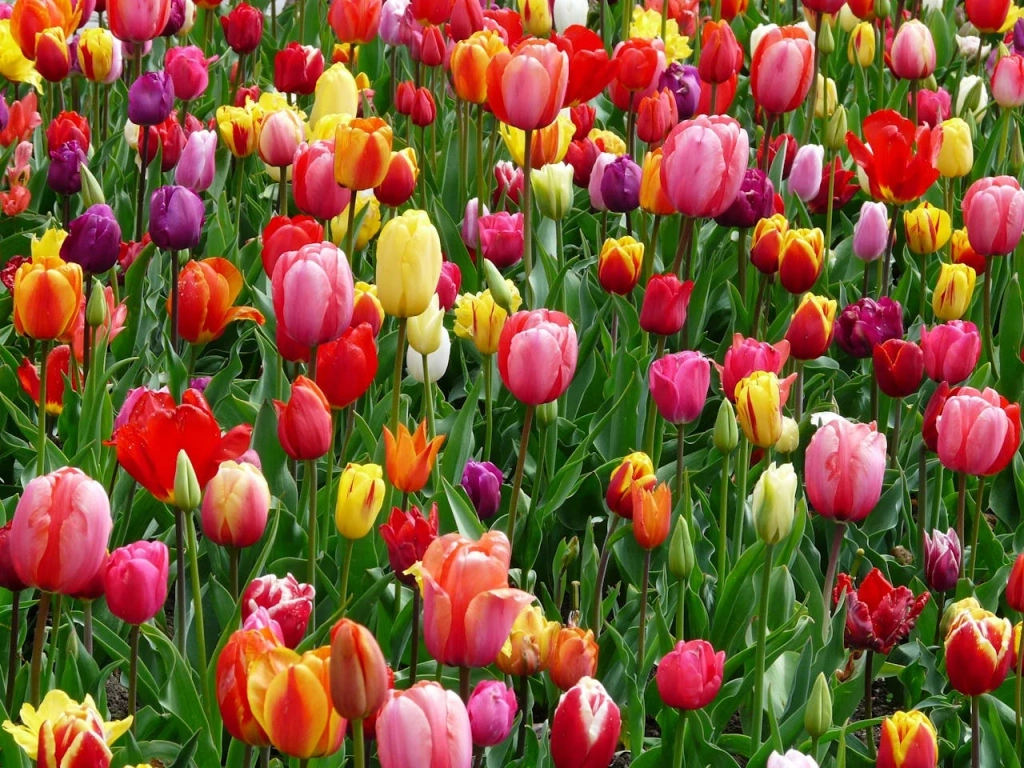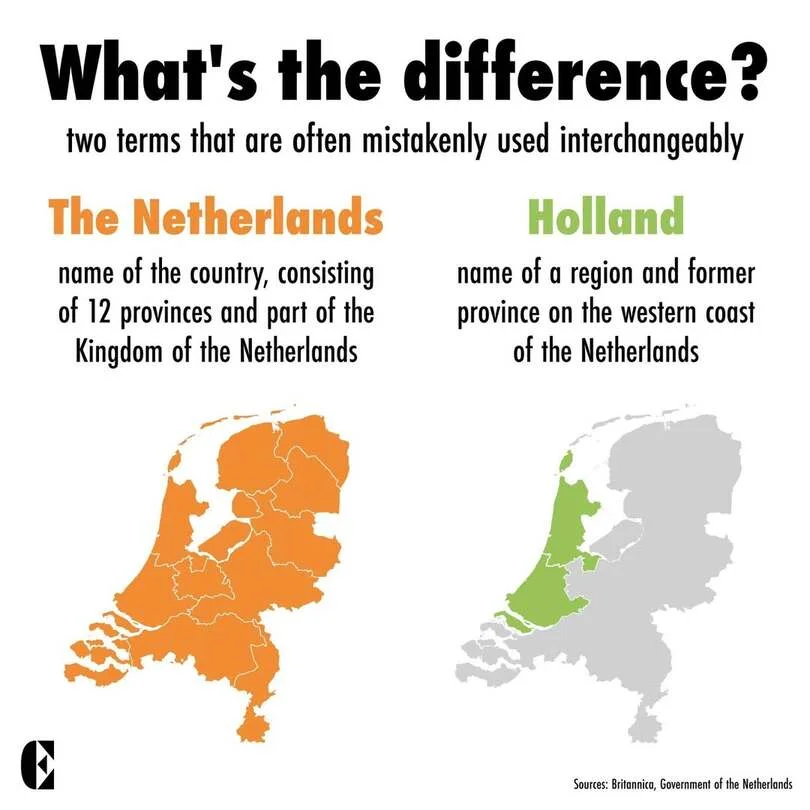When we’re in a conversation about European countries, we’re usually pretty confident in our knowledge, or at least, as long as the name of the given country is concerned. While Germany and Alemania or Hungary and Magyarország may need a little explanation, they’re basically just variations of the same thing in different languages.
However, when it comes to the Holland vs the Netherlands debate, not all of us are exactly sure. Add to the fact that people in the Netherlands speak Dutch, and you’re all set for confusion. So, what’s the Holland vs. Netherlands difference? Why are the people called Dutch? And when is it appropriate to use each term?
In this article we’re going to uncover the answers.
Holland vs. The Netherlands: Region vs. Country
Let’s start with the most crucial point in the Netherlands vs. Holland difference. The Netherlands is the official name of the country. It represents a sovereign state in Western Europe, which is a part of the larger Kingdom of the Netherlands (along with Aruba, Curaçao, and Sint Maarten).
Conversely, Holland is not a country. It is a region within the Netherlands, comprising two of the country’s twelve provinces: North Holland and South Holland. These are located along the North Sea coast and are home to many of the country’s most well-known cities.
For instance, Amsterdam, the country’s capital, is in North Holland, along with the largest airport in the country, Schipol. The Hague, a global political center, is in South Holland, along with Rotterdam, home of Europe’s busiest port.
Because of this immense concentration of population, economic power, and political dealings, Holland has historically dominated the entire nation, leading to the colloquial use of its name to refer to the whole country.
A Journey Through History: Why the Name Stuck
To fully understand the entire Holland vs the Netherlands debate, you may also have to look a little closer at the historical context. The actual name “Holland” first emerged in the 12th century as a county within the Holy Roman Empire.
It started out as a small but prosperous region which grew in influence considerably. This influence reached its heyday during the Dutch Golden Age in the 17th century. At this time, the Dutch Republic (officially the Republic of the Seven United Netherlands) became a global powerhouse in trade and exploration. Holland was at the very heart of this success.
The country had a powerful merchant fleet and the world-renowned port of Amsterdam, which were the engines behind the republic’s prosperity and immense wealth. When foreign powers engaged with the Dutch Republic, they were almost always dealing with merchants or diplomats from the Holland region. As a result, the name “Holland” became a brand name for the entire country.

Source: Pexels
Knowing the historical background of the country is key to understanding why tourists or foreigners often refer to the Netherlands as “Holland.” For example, the Netherlands in Hungarian and Serbian is both referred to as Holland (Hollandia and Holandija).
On the other hand, the iconic windmills and fields of tulips are most strongly associated with this particular region, further reinforcing the misconception. Even today, the national football team’s supporters will proudly shout “Hup Holland Hup,” a testament to the name’s ingrained cultural significance.
Dutch vs. Holland vs. Netherlands: Explaining the Differences
Understanding the differences between a country’s official and historical name is rather straightforward. However, if you want to explain why people from the Netherlands are called the Dutch, or Dutchies, things get more nuanced. To understand the relationship between Dutch vs Holland vs Netherlands, think of it this way:
- The Netherlands is the country.
- Holland is the most famous region within that country.
- Dutch is the term for the people, the language, and anything related to the Netherlands.
A person who is from the Netherlands is Dutch as well as the language they speak. They embrace Dutch culture, but that doesn’t mean that they are also from Holland. If someone is born in Amsterdam, for example, they can say that they are from Holland and the Netherlands at the same time. However, if they are from Maastricht, which is a city in Limburg province, they are from the Netherlands, but aren’t from Holland.
This is a critical point to remember, especially for those living or traveling in the country. Using the official and correct term, the Netherlands, shows respect for the full diversity of the nation and its people, who hail from all twelve provinces, not just the famous two.
From “Holland” to “The Netherlands”
To promote the usage of the Netherlands, the Dutch government has made concerted effort to move away from using the name “Holland” in official communications and tourism campaigns. The goal of the campaign was (and is) to promote the official name of the country and the diverse regions within it.
This “re-branding effort” highlights the importance of the country’s official name, the Kingdom of the Netherlands. The etymology of the name itself is a fascinating reflection of the nation’s geography: Nederlanden translates to “Low Countries” or “Low Lands,” a fitting description for a nation where much of the land is at or below sea level.

Source: Pexels
So, the next time you discuss this beautiful country, you can confidently explain the difference. You now have all the tools to engage in the Holland vs. Netherlands vs. Dutch conversation, whether you’re talking about the trade and economy that made the country great or the unique culture that makes it a popular tourist destination.
The Netherlands is a rich, complex nation, and its name deserves to be used with the precision that its history and identity command.
Experience The Country Firsthand
If you want to see the tulips and windmills of Holland, experience the country’s excellent economy, and high quality of life, along with learning some Dutch, your chance awaits. We at Robin specialise in blue-collar recruitment for companies in the Netherlands. We usually source high-quality vacancies that also provide accommodation, so your move abroad can be smooth.
Interested? Feel free to check out our job offers for the Netherlands.

 English
English  Lietuvių
Lietuvių  Latviešu
Latviešu  Polski
Polski  Português
Português  Română
Română  Slovenčina
Slovenčina  Magyar
Magyar  Русский
Русский  Espanol
Espanol  България
България  Čeština
Čeština  Italy
Italy  Croatia
Croatia  Greek
Greek 

